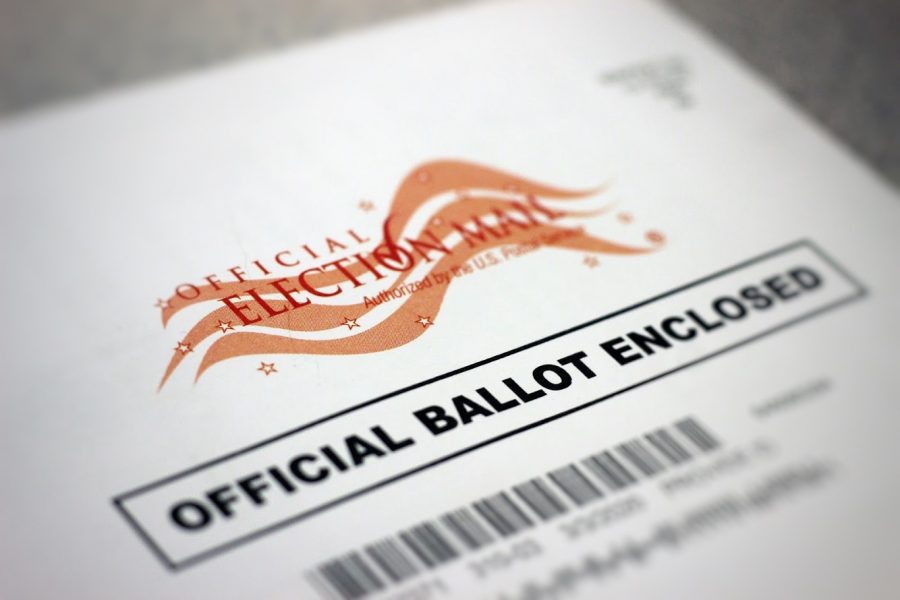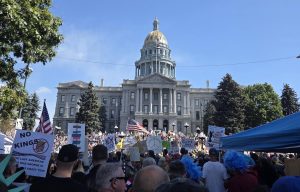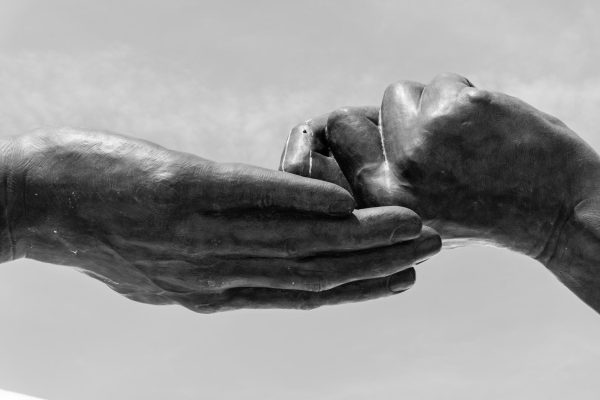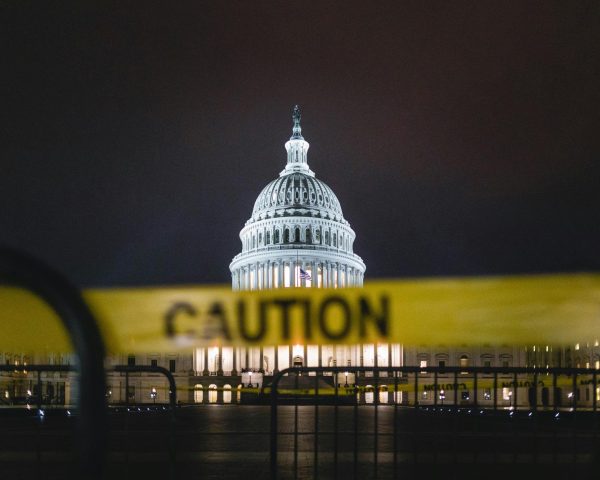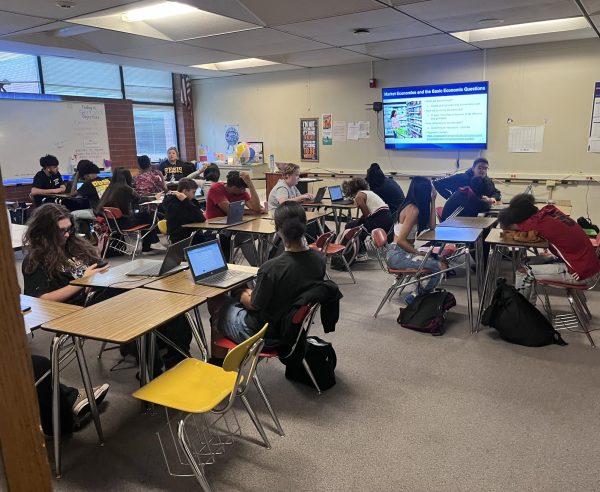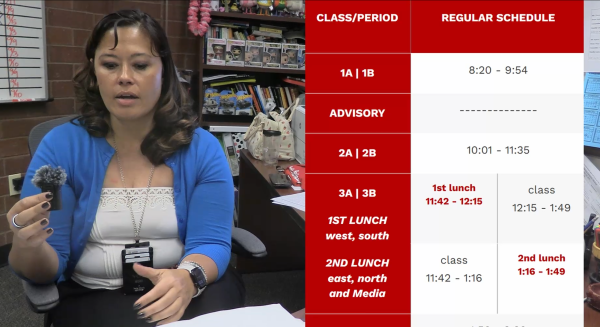Opinion: Asian Americans are politically inconspicuous
Feature Photo by: Eric Huynh – My ballot recently came in the mail, waiting to be used for voting. To all eligible voters in Colorado, they were mailed in the beginning of February.
February 27, 2020
As a 17 year-old citizen of the United States of America, I’ll be able to vote for a presidential candidate who I believe would be a good candidate for the country since I’ll turn 18 by the time the general election comes around on November 3.
In this day in age, adolescents rarely participate in politics. Teens, including myself, usually aren’t politically inclined for 4 reasons: lack of encouragement, lack of knowledge, barriers, and no interest.
The reason that stands out the most to me is teens are not interested in politics. Most of the time, we have the mindset that we don’t believe our vote would do anything to change our society or we don’t like the candidates who are running for president; however, another reason why I’m not actively into politics is because of my ethnicity.
Hasan Minhaj, a popular and influential figure in our century, hosts a show called, “Patriot Act,” where he “explores the modern cultural and political landscape with depth and sincerity” with a comedic effect. As I scrolled through my YouTube feed, it recommended a clip from the show called, “Don’t Ignore the Asian Vote in 2020.” Through facts and reliability, The video really opened my eyes on how inactive Asian Americans are in politics.
Only 49% of Asian Americans who were eligible to vote voted in the last election. That explains why we almost always have the lowest voter turnout of any racial group.
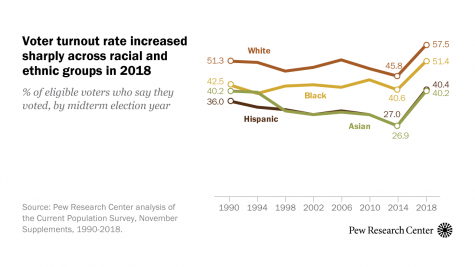
“Due to the turnout of voters a few years ago, I’m disappointed that only 49% of Asian Americans have the lowest voter turnout,” said Kathy Truong, a college student at CCA. “Every vote counts when it comes to presidential elections, primaries, and etc.”
In the past, Asian people faced tons of immigration laws; for example, the Chinese Exclusion Act of 1882 prevented Chinese workers from entering the country. Later on, Congress passed the Immigration Act of 1924 which prevented nearly every immigrant originating from Asia because back then, Americans thought the only Asian ethnicity was Chinese people. After Pearl Harbor was attacked by Japan, more than 100,000 persons of Japanese ancestry were placed in internment camps.
These acts demonstrated the racism they faced, and exclusion from American life; that changed in the 1960s when Congress passed the 1965 Immigration and Nationality Act, allowing multitudes of immigrants to immigrate to the United States. Initially, there were only 900,000 Asian Americans and after the law got passed, we now have about 19 million Asian Americans and that number will only continue to increase in the future.
Despite our huge population, politicians don’t usually reach out to Asian Americans, meaning Asian Americans never want to turn out in the first place if politicians aren’t engaging with them. Even the only Asian American candidate running in the presidential election, Andrew Yang, got ignored by the press, only receiving less than seven minutes of airtime at the debates and being omitted from MSNBC’s graphics 12+ times. Within the video, Andrew Yang made a valid point with Hasan Minhaj on why Asian Americans aren’t politically engaged: Asian parents and their lack of emphasis on politics: since presidential candidates aren’t reaching out to my parents, that means my parents don’t have a focus on politics; consequently, children of immigrants’ main goal is to succeed in school and be able to make money. Politics doesn’t necessarily belong to that goal.
“I received a ballot earlier this week and I just feel weird voting because my parents have never normalized it,” said Truong.
When Andrew Yang made that point, I related to that so much as a fellow Asian American; my parents just wanted me to focus on doing well in school to start off my path toward a successful future.
Even though politics isn’t a focal point in the Asian American community, I feel like we should participate more – because if we do, we will be a political force that can’t be stopped.
Why should Asian Americans partake in politics, you may ask?
We should aim to improve representation because it will showcase that the government doesn’t only consist of old, white men. We need to represent the diversity the country has — give “a voice to the voiceless.” We had that in Andrew Yang.
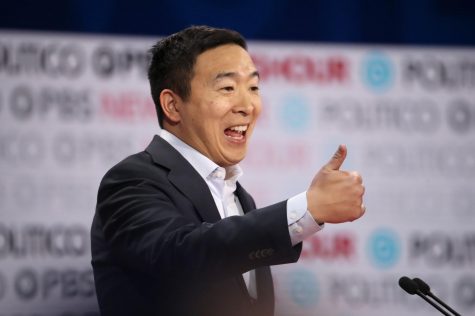
Personally, I was going to vote for him because not only of his bold choice to potentially be the first Asian American president, but his humble and kind personality along with his data-driven policies that really gave me hope in the political world. After all, he said himself that he didn’t run for president because he wanted to; he did because it was necessary.
Unfortunately, he dropped out of the presidential race due to his poor showing and numbers in the New Hampshire primary.
Despite dropping out, Yang still wants to help change the future of the American economy. Yang said that “if I can solve these problems as someone’s vice president, a member of an administration, we just need to start solving these problems for the next generation, and I’m happy to do my part. I’m also happy to do my part to campaign for the nominee and beat Donald Trump in the fall.”
Even if he’s not in the race anymore, he encouraged me to participate and I will continue to support him in the future when 2024 comes around.
Also, who we vote for president is the person that’s going to lead this country. As one of the largest and fastest growing populations, the Asian American community has a lot of political power that could be used. In ways we could increase political participation, politicians should be prioritizing their time to outreach to Asian Americans along with eliminating language barriers because we should feel like we belong in the voting process.
We will be a political force to be reckoned with in the future. We can’t hide within the shadows anymore. It’s our time to vote for someone who we believe in.
